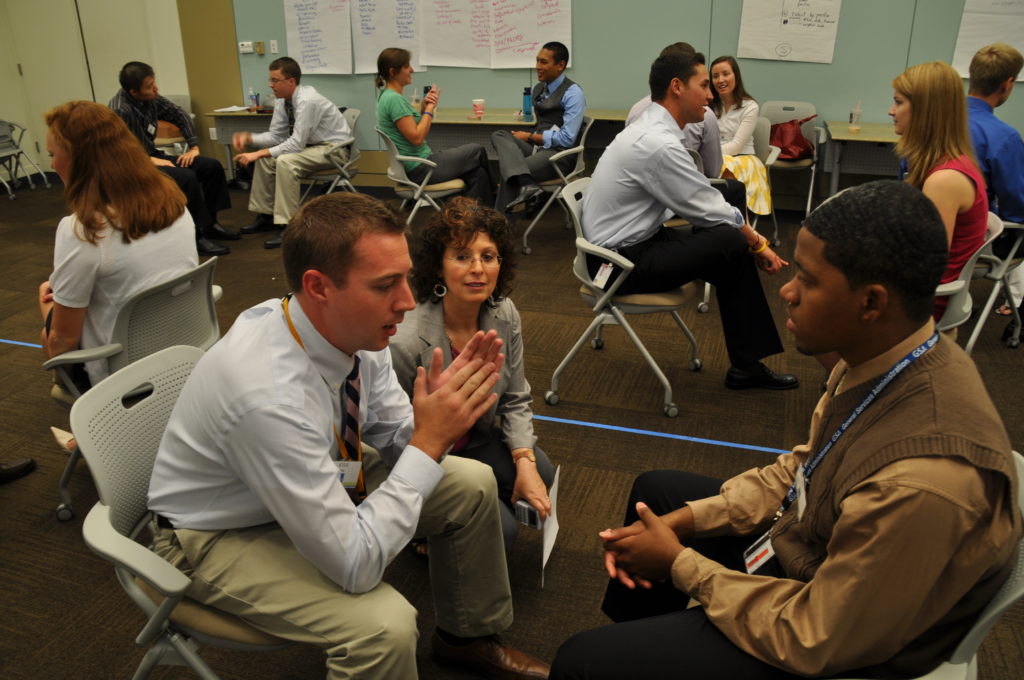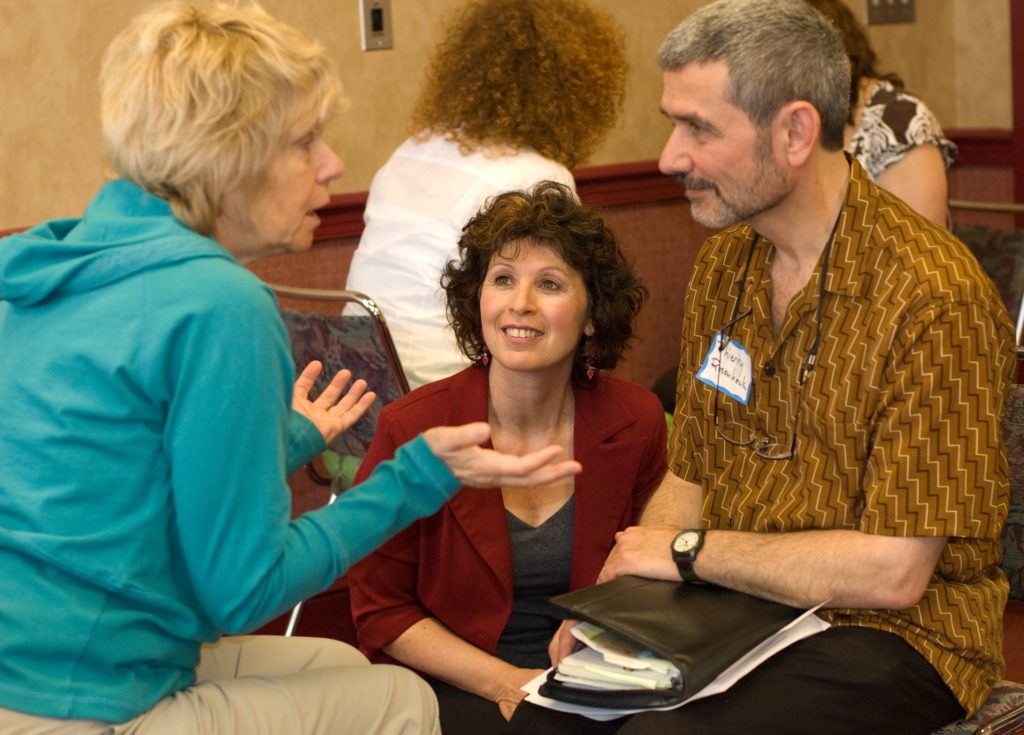After a recent workshop I led at Lehigh University in Pennsylvania, Lily, a quiet and intense student, newly-arrived from Ukraine, approached me and said:
“I have been in this country for several months and this is the first time, after just a two hour workshop, I feel connected to American people here.”
Social Scientists remind us that we are wired for sociability, attachment, affection, and companionship. We crave connection. But no screen, FaceBook post, tweet or Instagram image can provide what the live, face-to-face storytelling experience can.
A safe and structured space to share a story with another person, to listen and be listened to creates an immediate sense of trust and intimacy.
It is not just the content of what we share. At the core of the storytelling experience is the act of connecting through listening and being heard. This is what makes storytelling such a powerful change agent.

In fact, recent Psychology research from Tel Aviv University on victim-perpetrator relations offers scientific validation to the centrality of storytelling as a change agent. Here are a few highlights:
- The studies show that it is easier for us to identify as victims than as perpetrators of violence. Both Israelis and Palestinians are locked in a competition over the victim role, defined as “Competitive Victimhood”.
- Each group has a strong need for external recognition and acknowledgment of their suffering. Jews and Palestinians in the study, who read fictitious articles ‘proving’ that their side had suffered more, showed – contrary to the expectations of scientists – a greater willingness for conciliation with the other side.
- A shared victim-perpetrator identity, defined as”Inclusive Victimhood” (when both sides recognize the possibility that the feeling of victimhood isn’t theirs alone), increased the tendency to be generous and conciliatory toward the other side.
- The studies highlight the deep need to listen: “It’s enough to listen to the other side to open a window of conciliation”. In particular, they showed that “… when we succeed in being momentarily empathetic, without going on the defensive, without explaining and without objecting, only listening, that has a deep, positive effect on the other side….”

I read these studies with great interest (Read the full article) because it’s been my experience that when intentional space is created in a workshop, to share and listen to stories, not political declarations, it not only neutralizes the competition over the victim role, as in the Israeli/Palestinian conflict, but it also lessens the sense of isolation in any human encounter thus allowing greater openness and generosity toward others, creating a path for change.
This was Lily’s experience. For the first time since she had arrived in the United States, she felt connected to other students after hearing their stories and feeling heard herself. It changed her perspective on America and Americans, it opened the path for meaningful conversations and relationships.
As we embark on this new decade, my wish for 2020 is that we create more authentic encounters of listening and being heard that pave the way to tolerance and peace.

Dear Noa, thank you so very much for your story telling. I am a peace activist, ex South African living in Israel for past 50 years, and extremely distressed by the growing extremism and hatred. I have just read “A Land Twice Promised”, which is how I learned about your work. I think it is so very important and would be most helpful if this book would be translated into both Arabic & Hebrew.
Shalom Bernice,
My profound apologies for taking months to see your comment… my website was down and rebuilt and i have not received alerts so had no idea anyone even read my blog.
Thank you for such kind words! Of course things are even worse now but I am filled with hope at the awakening of so many people in Israel.
I would be happy to stay in touch – can you please contact me at noakrbaum@gmail.com?
I’ll be in Israel in December 2023 and would love to hear more about your work!
Toda and my apologies again,
G’mar Chatima Tova, Noa